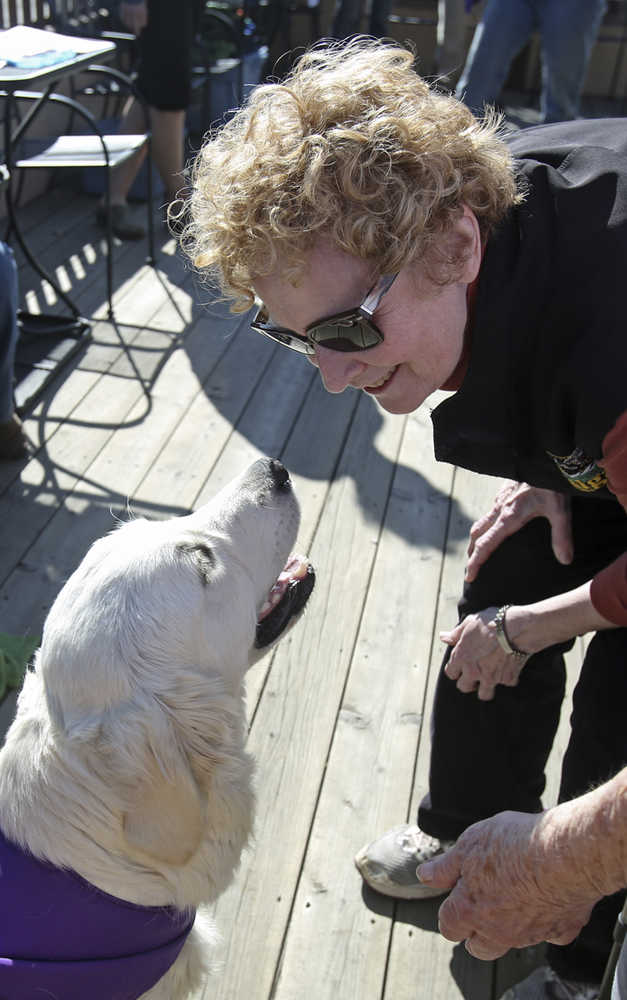FAIRBANKS (AP) — Nathan Collin rolled his wheelchair through Rohnert Park, California, accompanied at every turn by a service dog named Ethan. His goals for the day included taking the bus downtown to visit the grocery store, grabbing lunch and going to see a movie.
Collin isn’t usually a wheelchair user. He was using one not out of necessity but as part of his studies at Bergin University of Canine Studies — a school dedicated to providing training for service dogs and aspiring trainers of service dogs.
The purpose of the assignment was to give Collin an appreciation for the challenge everyday chores can bring and the ways service dogs can reduce that difficulty.
Collin graduated from Bergin in 2012 and returned to Fairbanks soon after to start a service dog training program with speech-language pathologist Betsey Jacobs.
Two years later, Collin and Jacobs’ program, TOPAD — The Other Paw Assistance Dogs — is thriving. They’ve placed their first dog and have three more in training. Six months ago, they officially received 501(c)(3) nonprofit status from the Internal Revenue Service, a process that routinely takes a year or more.
With The Other Paw, Collin and Jacobs train potential service dogs from birth through 2.5 years, when the dogs are placed with a companion. Their goal is to provide service dogs at little to no cost for their future owners.
The cost of obtaining a fully-trained service dog can range from $40,000 to $80,000 without assistance, according to Collin. Because he and Jacobs are able to do much of the work themselves and with partner organizations in town like Pawsitive Dog Training and the Aurora Animal Clinic, they are able to cut down significantly on placement costs.
Collin and Jacobs operate The Other Paw out of a small dry cabin in Goldstream Valley. Much of their training sessions take place at Pawsitive Dog Training, run by Susan Sampson around the back of the building occupied by Cold Spot Feeds.
On Sunday, The Other Paw organized a meet and greet at Gulliver’s Books, during which members of the public were given the chance to meet the service dogs in training and to watch them in action.
Jacobs and Collin set up demonstration booths where the dogs could show off their skills, like grabbing a bottle of water out of the cabinet or turning the light switch on and off.
The Other Paw starts every dog’s training with the goal of achieving the highest level of accreditation, which would qualify the dogs for placement with a person with paraplegia.
So far, The Other Paw has placed one dog, a chocolate lab named Ruger who now works with kids and adults at the Access Alaska office in Fairbanks.
The Other Paw’s dogs in training include Phineas, 1.5 years old, Robin BoJangles, 9 months old, and the nonprofit’s newest addition, Sophie Maye, 8.5 weeks old.
Sophie Maye has already begun her training, though at her age it consists mostly of socialization. Even at 8.5 weeks old, she has already mastered two commands, according to Sampson: snuggle and kiss.
“She’s really great at snuggle,” she said.

